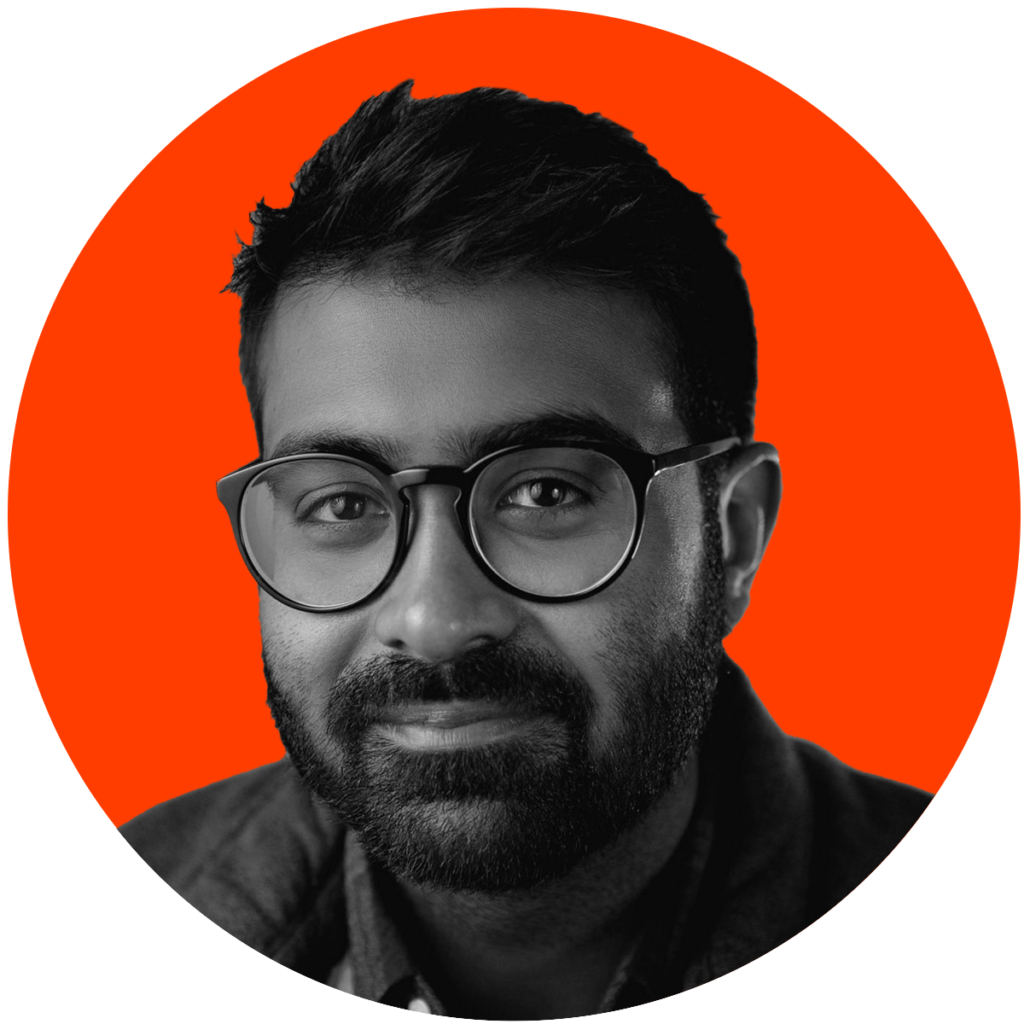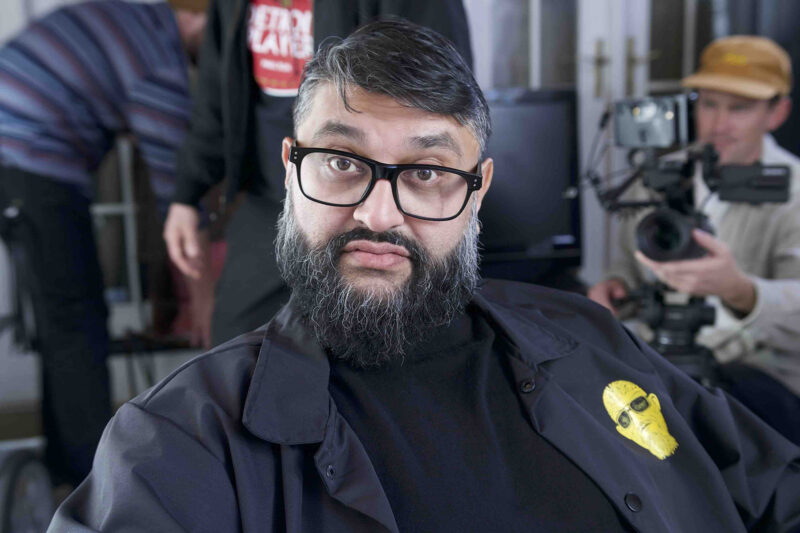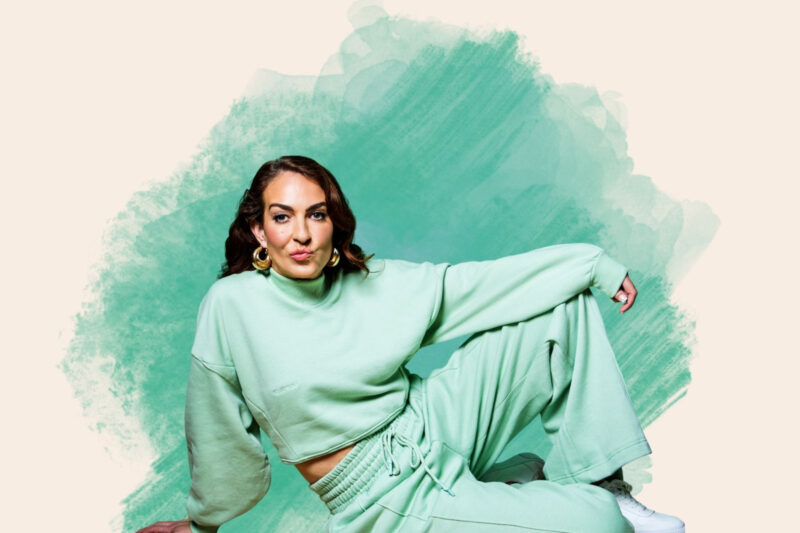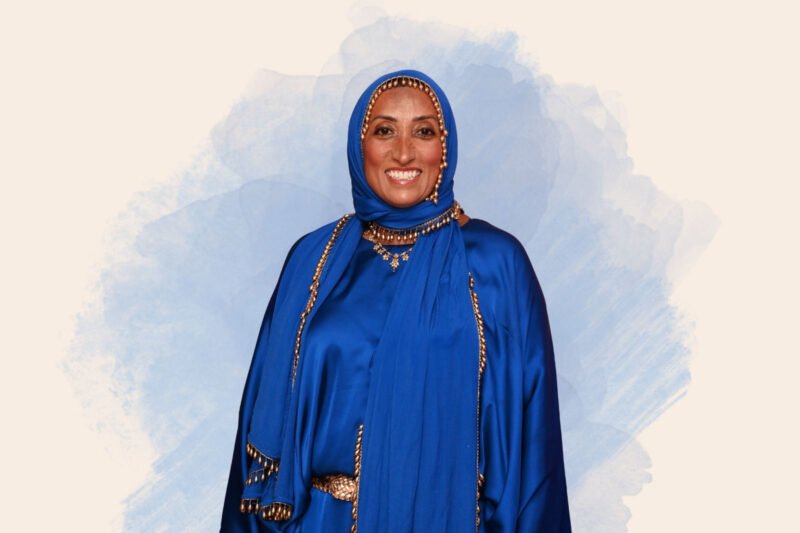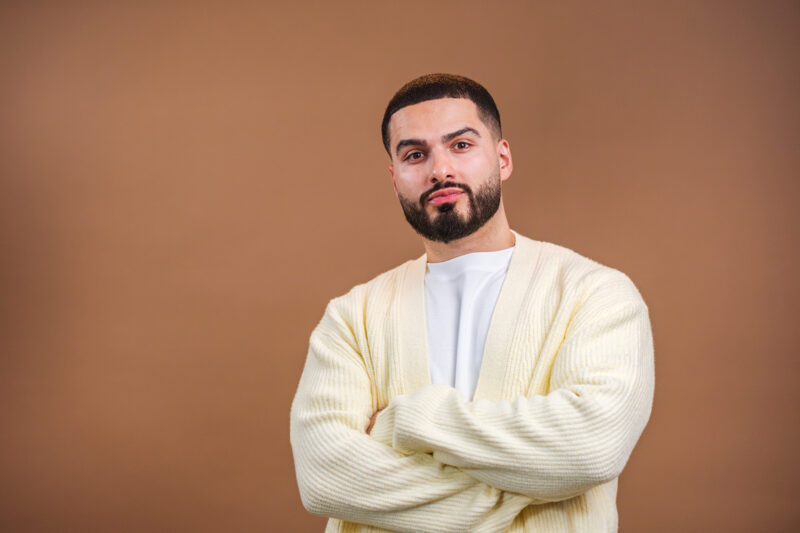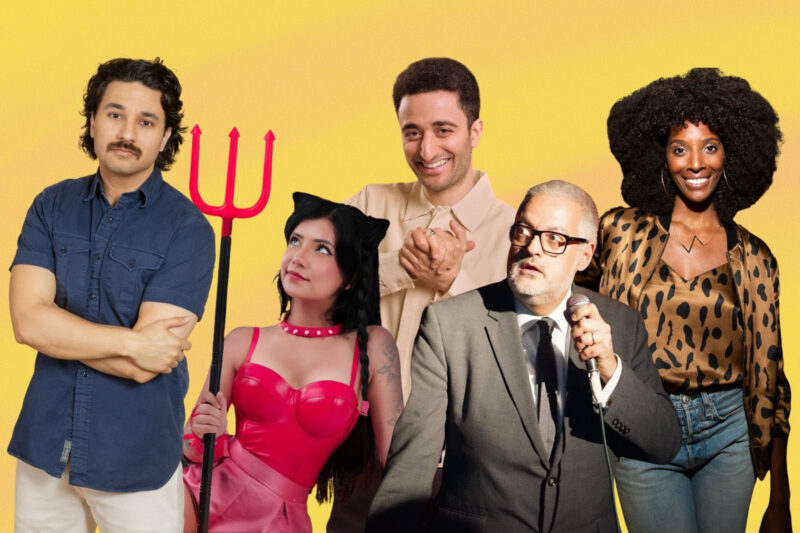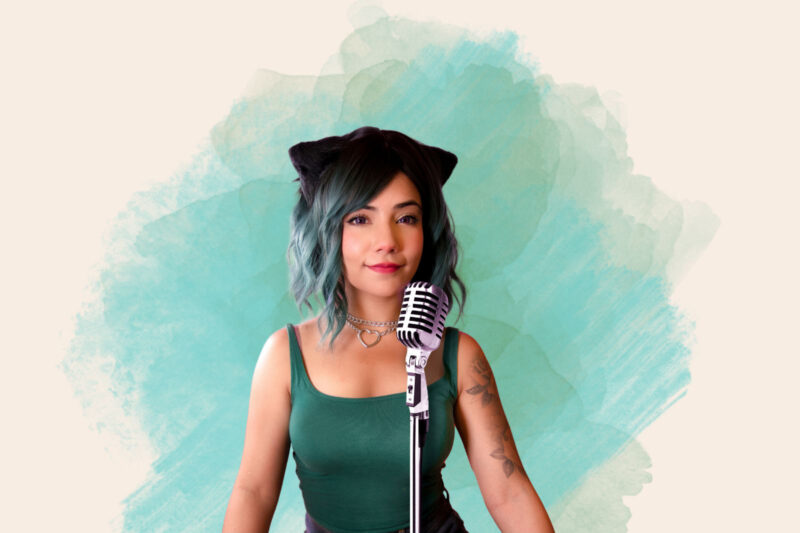
Bilal Zafar Q&A: ‘Being called a rising Muslim comedy star is a bit weird’
Photogragh courtesy of Bilal Zafar/Leslie Byron Pitt
The north London standup comic talks about winding up online bigots, Twitch and why being asked to go on BBC Asian Network annoys him
Bilal Zafar is an award-winning comedian, actor and writer who grew up in north London. His first solo show, Cakes, told the story of being deluged with Islamophobic abuse online while pretending he owned a Muslim-only bakery. It got him nominated as best newcomer at the Edinburgh Fringe Festival in 2016 and won him the prestigious Hackney Empire New Act of the Year award.
Since then, Zafar, 31, has gone on to write two more shows: Biscuit, in 2017, which centred around online dating, and Care, in 2022, which recalls his experiences working in a private care home for well-off older residents. During the Covid-19 lockdowns, he started a Twitch channel, @zafarcakes, where he streams himself playing video games, including Football Manager and Pro Evolution Soccer 5. It was recently made an official Twitch partner, and has over 15,000 regular viewers.
This interview has been edited for length and clarity.
How did you get into standup?
I was always a massive fan of comedy. Growing up, my brothers and I would watch Alan Partridge and other legends of British comedy. I didn’t start with stand-up until later, though.
When I went to University, I did a degree in filmmaking and script writing, hoping to be an Armando Iannucci type of guy. I imagined myself writing things in the background, for other people to act out. Eventually, I realised this would be a lot harder to do in practice, just because of the way that the TV and film industry work and how difficult it is to get writing jobs. I realised that I could write my own jokes and read them to other people on a stage. I gave it a go, and kept doing it. Ten years later, I’m still doing that.
Your first show, Cakes, was about being at the receiving end of an Islamophobic Twitter pile on. What was the process of turning that into a comedy routine?
The idea for the show came about by accident. I wasn’t even planning a comedy set at the time, I had a normal day job. On Twitter, here was a hashtag trend about boycotting Muslim businesses. My brother used an anonymous Twitter account to say that I was running a Muslim-only cake shop in Bristol and managed to convince people, including some people from the English Defence League, that it was real. I decided to play along with it. At one point, I took a picture of a gingerbread man that I said was Muslim. Basically, everything I was tweeting made people more and more angry. I kept a note of some of the tweets and they became the material that I would read out on stage.
One of the main challenges when I was writing the show was translating the humour on Twitter into a standup routine for a live audience. Online humour and standup are different disciplines when it comes to pacing, delivery and how you tell a story. When I was working on the show I used a PowerPoint presentation to show the audience the tweets, which helped to bridge the two worlds.
Do you have any strategies for dealing with hostile or difficult crowds?
To be totally honest, I haven’t really had particularly difficult audiences. Maybe it’s because most people who go to comedy shows are usually open minded, so personally speaking, I haven’t faced challenges about my race or religion from an audience. I have played at working men’s clubs occasionally, where I’ve had to go a little off script, only because some of my material might be culturally unfamiliar to them.
I’ve played a few shows to Muslim audiences — usually charity gigs or as part of an event — where I have had to adapt some of my material, for example, with jokes about dating, to make it more family friendly, especially to audiences that don’t go to stand-up shows very often. For those kinds of gigs, I also have to make sure my comedy isn’t too deadpan and that the people watching know I am telling a joke.
Two of your shows, Cakes, and Biscuit, centre around your experiences as a young, British Muslim man in the UK. Do you worry about being typecast around your identity?
A little bit. It’s weird because I don’t think I’ve ever talked about being Muslim in my shows, so I find it strange when I’m called a “Muslim rising star” or things like that. When I first did the Cakes show, which I saw as a funny story about online bigotry, I was being talked about in the media as a new Muslim comedian. It was a little weird, but fine.
I did get a bit annoyed when I kept getting asked to come onto the BBC Asian Network. I’m not against the channel in any way. It’s just that I don’t really listen to any of the music they play.
I remember another time when I was asked to be part of a writers’ room on a series about a detective, which I thought would be really cool, but as I scrolled through the email, one of the key points was that the detective was a lapsed Muslim, who was trying to capture a terrorist or something. It sounded awful.
Like some other comedians, including Limmy and Jain Edwards, you created your own Twitch show during the Covid lockdowns. Has the move to podcasts and streaming negatively affected the standup scene?
Personally, I see Twitch as mostly positive. On the streams I do, where I play Football Manager, I use a similar skillset to doing standup. I am still performing to an audience, writing jokes. Sometimes, I roast some viewers in the chat, in a similar way that a comedian might roast a heckler.
I started the Twitch stream when my gigs were getting cancelled and I needed to make some money. That’s the case for other comedians too. To book gigs costs money and, on top of that, you need money for hotels, food, childcare. These platforms have given some comedians an avenue to make a regular stream of income that allows them to be able to afford to do standup shows around the country.
For me, doing a Twitch show gives me the opportunity to be creative and to experiment, while opening up new avenues to get paid, in an industry where it’s harder to make money and where you aren’t paid on time. Don’t get me wrong, I’m not at a level where I earn a stable income from Twitch, but it has taken some of the financial pressures off me. It also means that I might be able to afford some accommodation at this year’s Edinburgh Fringe.
 Newsletter
Newsletter

